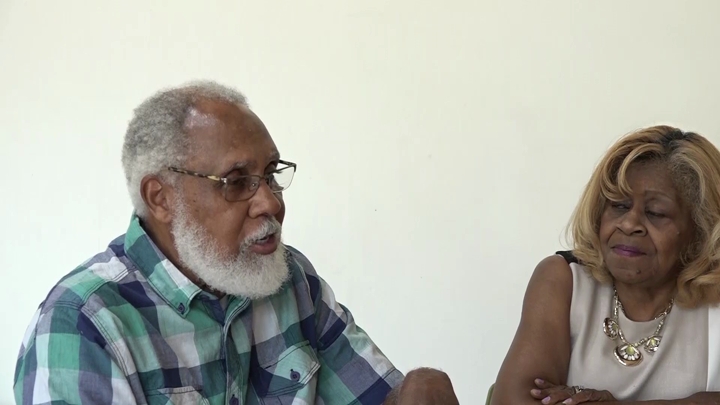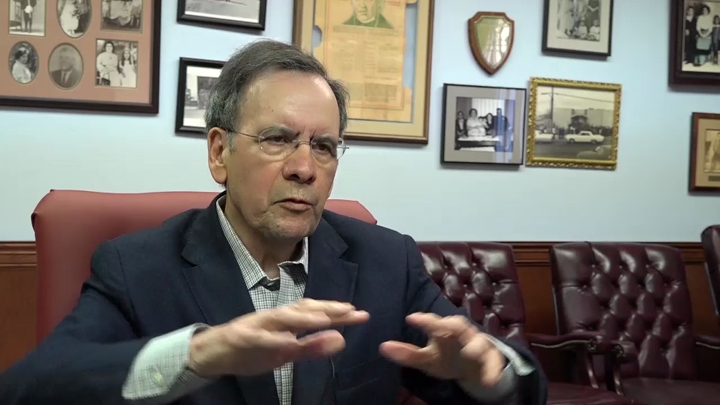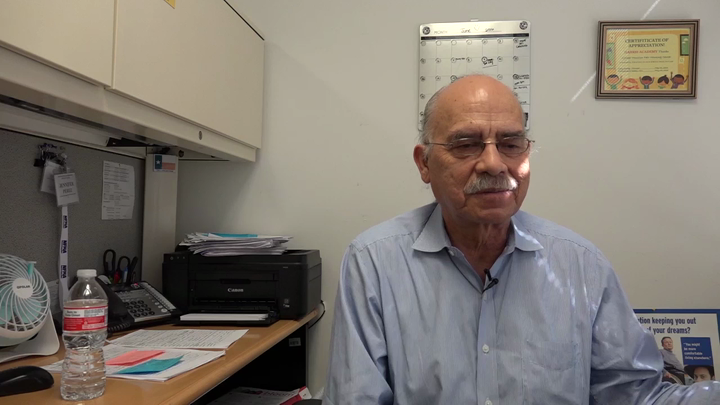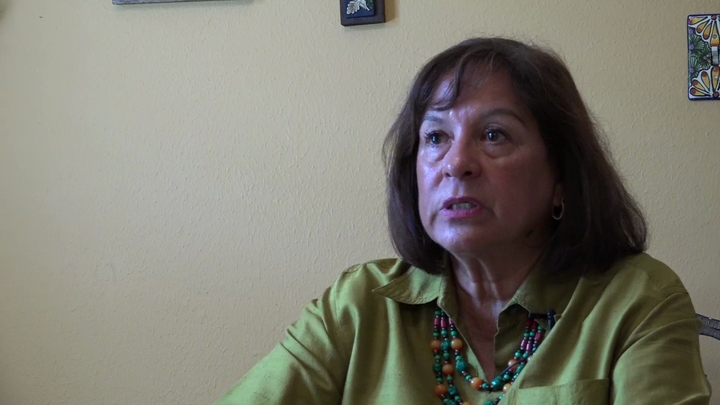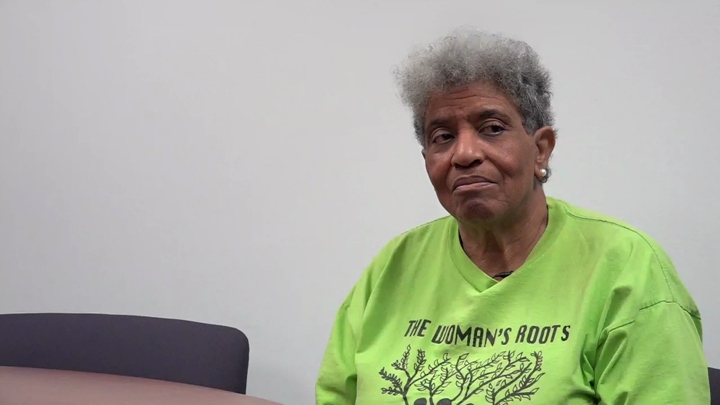Luthuli-Allen / Civil Rights
sign up or sign in to add/edit transcript
Lituli-Allen: We are reaching a tipping point on the question of incarceration too. So, with so many black and brown people incarcerated, we think that some civil rights have been violated when you can have 11 to 12 percent of the population, 40 percent of the men of that population being incarcerated in the jails of this country. There’s something wrong with the mass incarceration in this country, not only of black and brown people but poor people too. There’s a civil rights question, a democratic rights question related to our policies of the criminal justice system and incarceration. There’s civil rights, democratic question related to the question of not being able to work and get a livable wage. So, there’s a civil rights question related to the fact that the DREAMers have come to this country, excelled, don’t have a criminal history, and now we’re talking about self-deportation? That’s a civil rights question to us, because it goes to the very heart and foundation about what it is that we have here in America, what kind of society that we want to be, and whether or not we can truly keep up our traditions for being a haven for people who are fleeing oppression. Not just political oppression, but economic oppression. So, I’m saying that part of this is ongoing in that we are redefining what really represents civil democratic rights and how they all relate to human rights. It’s a dialectical process that is taking place, not just the language. It seems like the question that you asked me, that we are on the cusp of a paradigm shift as to what represents civil and democratic rights because we got new populations, we got new challenges. We got the challenges of what happens in a big industrialized democracy. We have the challenges of what happens when work is no longer meaningful. What happens when you have automation and robotics and people still need to work and still need to live. We have questions of should profit be the major motivator in a public health system. I’m saying that everything is very, very fluid and that we are actually redefining the contract between government and people now in a way that would have been unprecedented fifty years ago. This is all a result of what started happening fifty years ago. In the parlance of the streets, “Everything that didn’t come out in the wash is going to come out in the rinse.”
| Interview | Interview with Omowale Luthuli-Allen |
| Subjects | Citizenship › Immigration Status |
| Police and Law Enforcement › Mass Incarceration | |
| Medicine and Health › Access to Health Care | |
| Historic Periods › 2009-Present | |
| Tags | sign up or sign in to add/edit tags |
| Interview date | 2016-06-17 |
| Interview source | CRBB Summer 2016 |
| Interviewees | Luthuli-Allen, Omawale |
| Duration | 00:04:05 |
| Citation | "Civil Rights ," from Omawale Luthuli-Allen oral history interview with , June 17, 2016, Civil Rights in Black and Brown Interview Database, https://crbb.tcu.edu/clips/3452/civil-rights, accessed March 04, 2026 |


